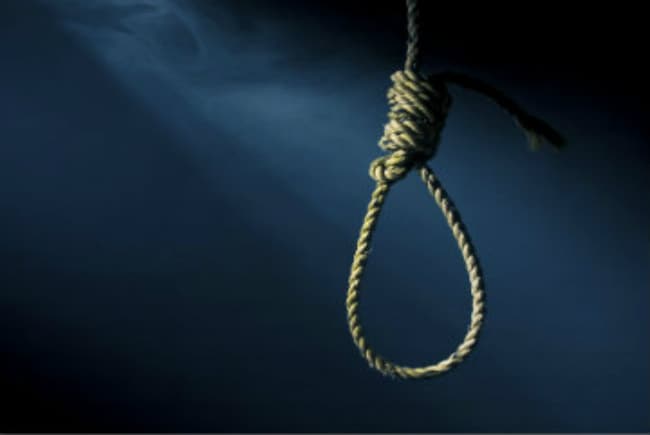
Representational Image.
Geneva:
United Nations human rights experts expressed "outrage and profound sadness" Friday at Iran's execution of two juvenile offenders, urging the country to "stop killing children."
Fatemeh Salbehi was hanged on Tuesday after being found guilty for killing a man she had been forced to marry when she was just 16, becoming the 11th woman to be executed in Iran this year, along with around 700 men.
The UN experts pointed to reported flaws in her trial and appeals process, and warned her execution was a clear breach of international law banning condemning juvenile offenders to death.
They also decried the execution a week earlier of Samad Zahabi, who was sentenced to death in March 2013 for killing a fellow shepherd when he was just 17.
"No notice was provided to Mr. Zahabi's family, nor was the required 48-hour notice provided to his lawyer," the experts said in a statement.
Ahmed Shaheed, the UN's top expert on the rights situation in Iran, said the two executions were "disturbing examples of surging execution rates and questionable fair trial standards in the Islamic Republic of Iran."
The UN expert on summary executions, Christof Heyns, meanwhile slammed the executions as "unlawful killings committed by the State, the equivalent of murders performed by individuals."
"These are profound tragedies that demean the value of human life and sully the reputation of the country," he said, pointing out that "executing a juvenile offender, especially after a questionable trial, directly contravenes the International Covenant on Civil and Political Rights and the Convention on the Rights of the Child."
"Iran must immediately stop killing children," he insisted.
Dubravka Simonovic, the expert UN Special Rapporteur on violence against women, highlighted the court's lack of consideration for the circumstances surrounding Salbehi's crime, which she said were "emblematic of the struggles victims of domestic abuse face in the judicial system."
"We cannot ignore the serious consequences of psychological, sexual and physical violence in the home on a woman's physical and psychological health," she said.
Highlighting Salbehi's young age at the time of her marriage and her lack of consent, Simonovic voiced concern over the high numbers of early and forced marriages in Iran.
The three experts called on Tehran to immediately establish a moratorium on executions and work towards abolishing the death penalty all together.
Fatemeh Salbehi was hanged on Tuesday after being found guilty for killing a man she had been forced to marry when she was just 16, becoming the 11th woman to be executed in Iran this year, along with around 700 men.
The UN experts pointed to reported flaws in her trial and appeals process, and warned her execution was a clear breach of international law banning condemning juvenile offenders to death.
They also decried the execution a week earlier of Samad Zahabi, who was sentenced to death in March 2013 for killing a fellow shepherd when he was just 17.
"No notice was provided to Mr. Zahabi's family, nor was the required 48-hour notice provided to his lawyer," the experts said in a statement.
Ahmed Shaheed, the UN's top expert on the rights situation in Iran, said the two executions were "disturbing examples of surging execution rates and questionable fair trial standards in the Islamic Republic of Iran."
The UN expert on summary executions, Christof Heyns, meanwhile slammed the executions as "unlawful killings committed by the State, the equivalent of murders performed by individuals."
"These are profound tragedies that demean the value of human life and sully the reputation of the country," he said, pointing out that "executing a juvenile offender, especially after a questionable trial, directly contravenes the International Covenant on Civil and Political Rights and the Convention on the Rights of the Child."
"Iran must immediately stop killing children," he insisted.
Dubravka Simonovic, the expert UN Special Rapporteur on violence against women, highlighted the court's lack of consideration for the circumstances surrounding Salbehi's crime, which she said were "emblematic of the struggles victims of domestic abuse face in the judicial system."
"We cannot ignore the serious consequences of psychological, sexual and physical violence in the home on a woman's physical and psychological health," she said.
Highlighting Salbehi's young age at the time of her marriage and her lack of consent, Simonovic voiced concern over the high numbers of early and forced marriages in Iran.
The three experts called on Tehran to immediately establish a moratorium on executions and work towards abolishing the death penalty all together.
Track Latest News Live on NDTV.com and get news updates from India and around the world

